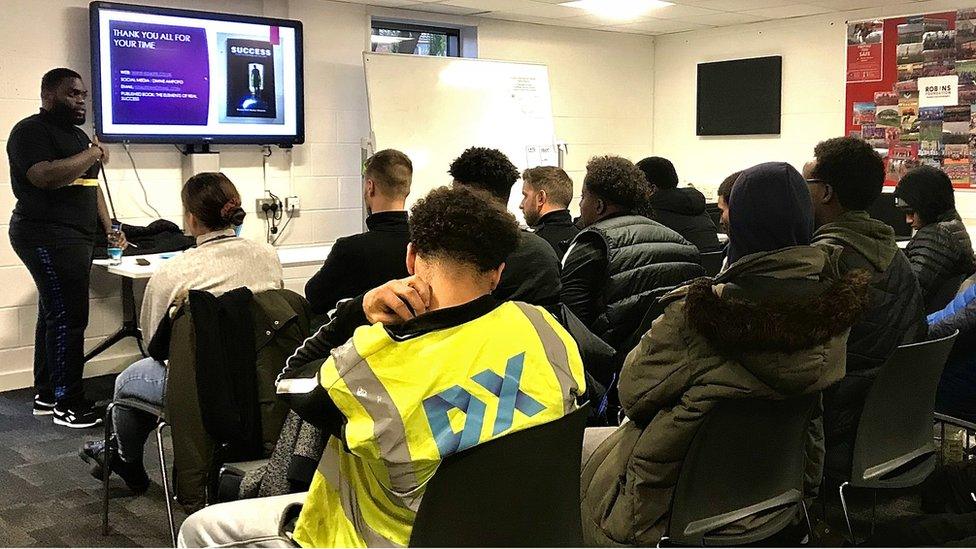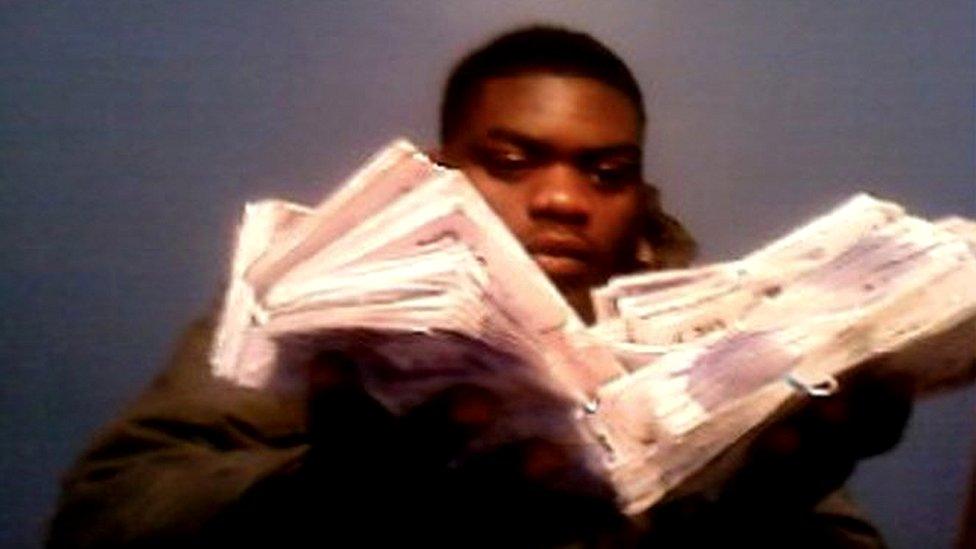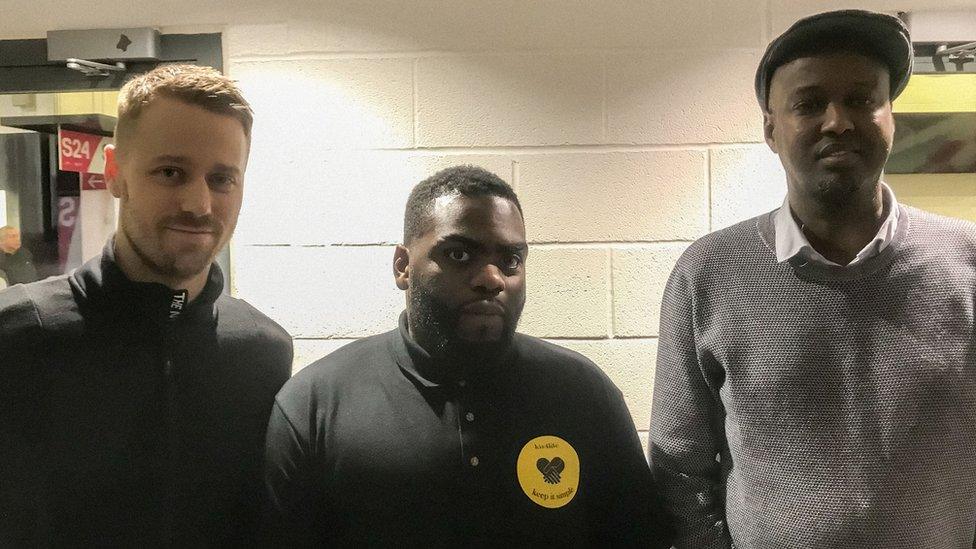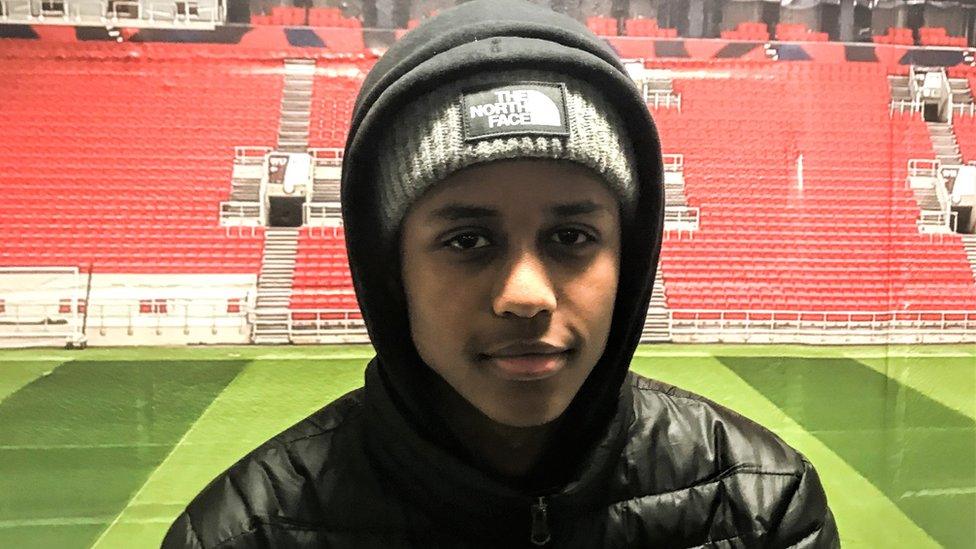Reformed gang leader inspires teens at Ashton Gate
- Published

Divine Ampofo told teenagers that being bullied and his family's poverty had led to him join a gang to get an income
With an hour to go before kick-off at Ashton Gate, a crucial pep talk is taking place deep inside the stadium.
It's not Bristol City manager Lee Johnson firing up his players before a crucial game with Nottingham Forest, but a workshop aimed at keeping young people from being drawn into gangs.
A partnership between the local police, the Somali community and the football club, the gang prevention scheme aims to reach young people before they are groomed into a life of crime.
Divine Ampofo, a former drug dealer from London, shared his story with the group.
Having moved to the UK from Ghana, he told the assembled teenagers that being bullied because of his race and also his family's poverty led to him joining a gang to get an income.
He rose through the ranks to eventually run the drug operation on his own estate in Waltham Forest, becoming wealthy but also forced to be involved in extreme violence.
He left the drug trade behind and now tries to help others do the same.

Divine Ampofo left the drug trade behind and now tries to help others do the same

Listening to Divine Ampofo's talk (pictured middle) were dozens of teenagers along with PC Ben Spence (left) and Khalil Abdi (right)
Listening to his talk at Ashton Gate were dozens of teenagers, along with PC Ben Spence and Khalil Abdi.
PC Spence, from Trinity Road Police Station in central Bristol, formed the Gang Prevention scheme after seeing similar programmes in London.
He then joined up with Mr Abdi, who has been working with teenagers since 2014 through his organisation Bristol Horn Youth Concern, using sport to teach young people about responsibility and teamwork.
The workshops are overseen by Jon Pinches at Bristol City, with financial support from the Premier League Kicks campaign.
PC Spence said: "The area we cover is massively diverse and certain communities are easier to engage with others.
"With some we have links and some we don't but we have to be representative of the communities we police.
"The reason I set up this [gang prevention] scheme was to create the link but also to break down barriers through sport and try and educate some of the young people about the realities of that [gang] lifestyle that they can tempted into or even groomed into.
"I love football and a lot of these lads do as well. I want to make them see police officers as people as well because often people just see the uniform."
Mr Abdi, said: "It's important for the young people to see someone like Divine who can speak about his experience, about people losing their lives. But he has made something of himself and had success.
"That's what we want young people to see, that there is a better way.
"We're also showing them that we are here for them, we care about them and we support them. Sometimes they feel like nobody cares about them, like they have no value but we tell them: No, they have value and they are important to their community and their families."

Yahya Jama said he knows people who have been drawn into the gang lifestyle, and it could have happened to him
One of the teenagers involved, Yahya Jama, said: "Khalil gave us responsibility at a young age and told us: 'this is your football, you manage it and take care of it'.
"It started off with three of us and there are now nearly 200 of us a week."
Yahya, who is now studying law, said he knows people who have been drawn into the gang lifestyle, and it could have happened to him.
"It [Khalil's intervention] woke me up to what was going on around me and I would say it kept me one step ahead."
Up until this year the Gang Prevention events had been aimed at teenagers from Bristol's large Somali population but has been expanded to include young people covered by the Call-In scheme which was first piloted in Bristol.